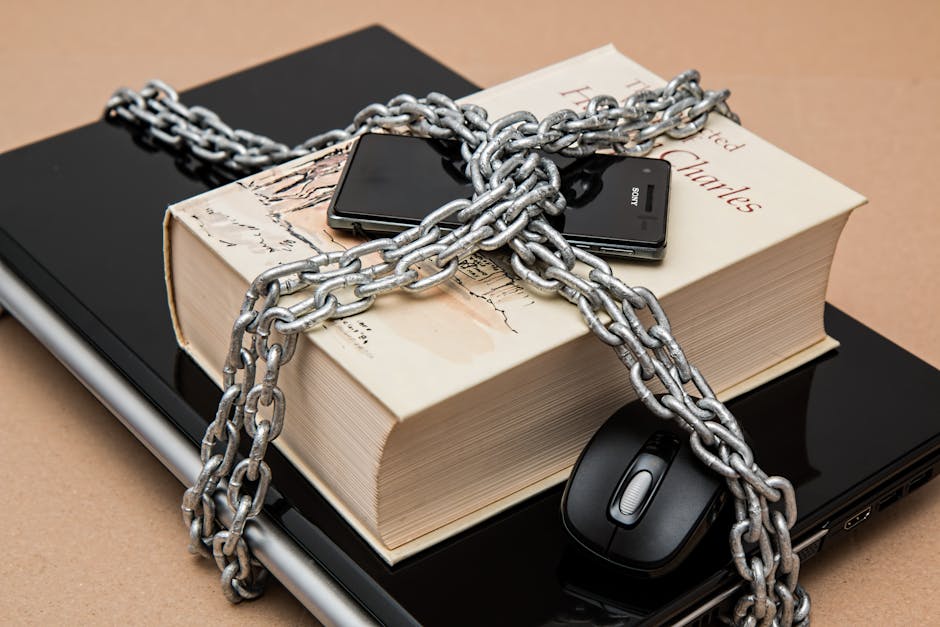Digital Assets and Your Will: Safeguarding Your Online Legacy
You’ve accumulated a vast digital estate comprising social media profiles, online banking accounts, and digital storage services, which contain sentimental and financial value that extends beyond your lifetime. These digital assets require consideration in your estate planning, as they hold cherished memories, important documents, and sensitive information. Without proper planning, loved ones may struggle to access and manage these assets. By creating a plan, you can safeguard your digital legacy, ensuring that your wishes are respected and your digital assets are handled according to your desires. Now, take the first step in securing your digital future.
Key Takeaways
• A comprehensive will should include a digital asset plan, outlining management and distribution of online assets after passing or incapacitation.• Identify a digital executor, trusted with managing digital assets according to your wishes, and grant them access to passwords and accounts.• Document all digital assets, including social media profiles, email accounts, and online storage services, in a secure and accessible location.• Consider the sentimental and financial value of digital assets, such as cherished memories and important documents, when planning their distribution.• Ensure your digital asset plan safeguards against unwanted disclosures, identity theft, and emotional distress for loved ones.
Understanding Digital Assets

As you accumulate digital assets, you’re likely unaware of the vast array of intangible possessions you’ve acquired over the years, from social media profiles to online banking accounts.
These digital assets, often overlooked, hold significant sentimental and financial value. They’re a part of your digital inheritance, a collection of virtual heirlooms that deserve consideration in your estate planning.
Think about it: your social media profiles, email accounts, and online storage services contain cherished memories, important documents, and sensitive information.
They’re an integral part of your digital identity, and their significance extends beyond your lifetime. When you pass away, these digital assets won’t disappear; they’ll remain, waiting to be managed and distributed according to your wishes.
However, without proper planning, your loved ones may struggle to access and manage these digital assets. They might face difficulties in closing or memorialising your social media profiles, accessing important documents, or retrieving cherished memories.
Types of Digital Assets

As you start to think about your digital assets, you’ll realise that you have a range of online possessions that need to be considered.
From social media profiles that hold sentimental value to online storage accounts containing important documents, and digital financial assets that have monetary worth, you must identify and organise your digital assets.
Social Media Profiles
You likely have multiple social media profiles, each containing a digital footprint that will outlast you unless you make provisions for their management after your passing.
These profiles hold sentimental value, containing cherished memories and interactions with loved ones. It’s vital to think about what happens to these profiles when you’re gone.
Facebook, for instance, offers profile memorialisation, allowing friends and family to post condolences and share memories on your profile. This can serve as a digital memorial, preserving your online presence and allowing loved ones to continue interacting with your profile.
However, it’s imperative to ponder content ownership – who’ll manage the content you’ve shared, and who’ll have access to it? Will your executor be able to manage your profiles, or will they be locked out?
Online Storage Accounts
Your online storage accounts, such as Google Drive, Dropbox, or iCloud, hold a treasure trove of digital assets, including important documents, cherished photos, and irreplaceable videos.
These accounts are a crucial part of your digital legacy, and it’s essential to ensure their security and organisation.
Cloud security is a top concern, as these accounts can be vulnerable to hacking and unauthorised access.
To protect your digital assets, consider the following:
Enable two-factor authentication to add an extra layer of security to your accounts.
Use strong, unique passwords for each account, and avoid using the same password across multiple platforms.
Regularly review and update your file organisation, ensuring that your digital assets are easily accessible and identifiable.
Digital Financial Assets
Digital financial assets, including cryptocurrency wallets, online banking accounts, and investment platforms, hold significant monetary value and require careful consideration in your estate planning.
As you navigate the world of digital finance, it’s imperative to recognise the importance of including these assets in your will. Cryptocurrency, in particular, presents unique challenges due to the rapidly evolving landscape of cryptocurrency regulation.
It’s paramount to stay informed about changing laws and regulations to safeguard your digital legacy.
Investment diversification is another critical aspect of digital financial assets.
You may have invested in various online platforms, and it’s necessary to account for these investments in your estate planning. Consider the different types of digital financial assets you own, including stocks, bonds, and other investment vehicles.
Make a thorough list of your digital financial assets, including passwords, access codes, and other relevant information. By doing so, you’ll facilitate a seamless handover of your digital financial assets to your beneficiaries, avoiding potential disputes and confusion.
Why You Need a Plan

As you accumulate digital assets, you’re leaving behind a digital footprint that can outlast you.
You need a plan to guaranty that your online presence is managed according to your wishes after you’re gone.
Without one, your loved ones may struggle to access, manage, or even find your digital assets, leading to uncertainty and potential complications.
Digital Footprint Concerns
When you pass away, your online presence will outlive you, leaving behind a digital footprint that can have unintended consequences for your loved ones and beneficiaries.
Your cyber legacy, comprising social media profiles, email accounts, and online storage, can become a digital heirloom, but without a plan, it can also lead to issues.
-
Unwanted disclosures: Your online accounts may contain sensitive information that you wouldn’t want to be publicly disclosed, such as financial data, personal messages, or embarrassing photos.
-
Identity theft: Hackers may exploit your digital footprint to steal your identity, leading to financial losses and reputational damage.
-
Emotional distress: Your loved ones may stumble upon online content that can cause them emotional distress, such as painful memories or unfinished conversations.
Planning for the Unexpected
You need a plan to guaranty your digital assets are handled according to your wishes, rather than leaving it up to chance or relying on your loved ones to figure it out.
Without a plan, your digital legacy may be left in limbo, causing unnecessary stress for your loved ones.
By having a plan in place, you can safeguard that your digital assets are managed according to your wishes, even in the event of an unexpected passing or incapacitation.
Contingency planning is key to safeguarding your digital assets.
This includes designating a digital executor to manage your online presence, as well as setting up emergency funding to cover any expenses related to your digital assets.
Emergency funding can be used to pay for services like website maintenance, cloud storage, and social media management.
By planning for the unexpected, you can rest assured that your digital legacy will be protected and managed according to your wishes.
Don’t leave your digital assets to chance – take control of your online legacy today.
Choosing a Digital Executor

Naming a digital executor in your will guarantees that someone you trust has the authority to manage your digital assets according to your wishes after you’re gone. This person will be responsible for closing or maintaining your online accounts, handling your digital legacy, and carrying out your wishes.
Choosing the right digital executor is vital, as they’ll be tasked with managing your digital life after you’re gone.
When selecting a digital executor, consider the following Executor Selection Criteria:
-
Technical expertise: Your digital executor should be comfortable using technology and accessing the online world.
-
Trustworthiness: You need someone who’ll respect your wishes and maintain confidentiality when managing your digital assets.
-
Organisational skills: Your digital executor should be able to locate and manage your digital assets, which can be scattered across various platforms and devices.
You’ll want to choose a Trusted Confidant, someone who understands your online presence and can carry out your wishes. This person may be a family member, friend, or professional advisor.
Consider having an open and honest conversation with your chosen digital executor about your wishes and expectations. By doing so, you can confirm that your digital assets are managed according to your desires, even after you’re gone.
Identifying and Documenting Assets

To guaranty your digital executor can manage your digital assets effectively, it’s vital to identify and document all your online accounts, digital properties, and devices, so they can access and handle them according to your wishes.
This process involves creating an Asset Inventory, an exhaustive list of all your digital assets, including social media profiles, email accounts, online storage services, and digital devices.
You should also think about documenting your Digital Heirlooms, such as family photos, videos, and important documents, which hold sentimental value.
These digital possessions are essential to your online legacy, and you’ll want to safeguard them and pass them on according to your wishes. When creating your Asset Inventory, make sure to include details such as usernames, account types, and any relevant passwords (which we’ll discuss later).
You may also want to ponder categorising your digital assets into groups, such as ‘Personal,’ ‘Financial,’ and ‘Professional,’ to make it easier for your digital executor to navigate and manage your digital estate.
Password Protection and Storage

Your digital executor will need access to your passwords to manage your digital assets, making secure password storage and protection a crucial aspect of your digital estate planning.
Without proper password management, your digital executor may struggle to access your digital assets, causing unnecessary delays and complications.
To facilitate seamless management of your digital assets, consider the following password protection and storage strategies:
-
Cloud Vaults: Utilise cloud-based password managers that offer advanced security features, such as encryption and two-factor authentication. These services provide secure storage for your passwords and allow you to grant access to your digital executor.
-
Biometric Authentication: Leverage biometric authentication methods, like fingerprint or facial recognition, to add an extra layer of security to your password storage. This guarantees that only authorised individuals can access your passwords.
-
Password Generators: Use password generators to create unique, complex passwords for each of your digital assets. This helps prevent password reuse and reduces the risk of password-related security breaches.
Digital Asset Distribution Wishes

Now that you’ve secured your digital assets with robust password protection, you can focus on distributing them according to your wishes after you’re gone. This is where your digital asset distribution wishes come into play.
Think carefully about who you want to inherit your digital assets, and what you want to happen to them after you pass away.
You should consider including specific Estate Instructions in your will, detailing how you want your digital assets to be distributed. This could include granting access to specific Digital Beneficiaries, such as family members or friends, who’ll inherit your digital assets.
You may want to leave your social media accounts to a family member, or your digital photo collection to a close friend.
Think about what you want to happen to your digital assets, and make sure your Estate Instructions reflect your desires. Do you want your digital assets to be deleted, or preserved for future generations?
Who do you trust to manage your digital legacy? By making these decisions now, you can safeguard that your digital assets are distributed according to your wishes, and that your online legacy is protected.
Preparing for the Unexpected

As you plan for the distribution of your digital assets, it’s equally important to prepare for the unexpected events that can occur before you pass away, such as a sudden illness or accident that renders you incapacitated.
You may not be able to manage your digital assets, and your loved ones may not know how to access or manage them on your behalf.
To prepare for such situations, consider the following:
Emergency FundsSet aside funds to cover three to six months of living expenses in case you’re unable to work due to illness or injury. This will help your loved ones cover essential expenses while you’re incapacitated.
Life InsuranceConsider investing in life insurance to provide financial support for your loved ones in the event of your passing. This can help them manage your digital assets and cover any expenses associated with settling your estate.
Digital Asset ManagementDesignate a trusted individual to manage your digital assets in the event you become incapacitated. This person should have access to your passwords, accounts, and other relevant information to ensure a smooth transition.
Conclusion
As you reflect on your digital legacy, imagine a treasure chest overflowing with digital riches – but without a map, it’s lost forever.
By taking control of your digital assets, you’re not only securing your online presence but also safeguarding memories, relationships, and hard-earned accomplishments.
Don’t leave your digital legacy to chance; take the reins and guaranty your digital treasures are passed down to the next generation, shining brightly like a beacon in the digital darkness.
Contact us to discuss our services now!
